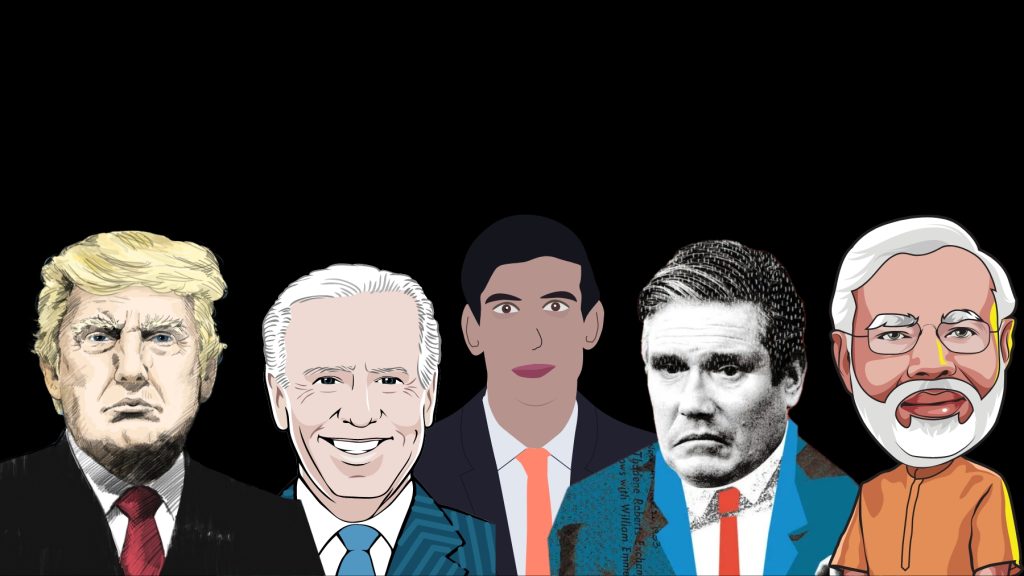
Who’s Kidding Who?
We’ve been seeing a lot of media attention recently about OpenAI, Google, Anthropic and Meta putting limits on AI to protect the electoral process this year, so that the ‘will of the people shall be served’ (jeez, I nearly typed ‘severed’ there!).
OpenAI will stop its tools from pretending to be human, Bard will ignore you if you ask a political question and Meta will, umm, erase doubt about what’s real and what’s fake, by labelling AI-generated content.
Perhaps they should all first erase doubt about their own political inclinations. Because it’s the worst kept secret in commerce and politics that, whatever their protestations to the contrary, Big Tech will always favour the political party which has a less stringent approach to regulations.
A Curse on Regulations!
Regulations are the nemesis of Big Tech because, from the management’s and shareholder’s point of view, they hold back stock value, like tethering a wild horse at a rodeo. And as we have seen from the recent crowing of the magnificent seven, stock value is their priority. Of course, greater stock value is achieved by meeting consumer need. But just as obviously in any competitive marketplace, the consumer is not the priority. This is perhaps too simplistic, but the base proof is all there for anyone to see.
Nations who favour fewer regulations are governed by political parties who place global trading superiority over any other consideration. They want to place as few restrictions as possible in the pursuit of wealth. Not for you, of course.
Our lives and lifestyles have been immeasurably improved by technology today, so we find it easy to trust that these recent pronouncements by Big Tech are in our interests. But Big Tech and you are not on the same page.
Amongst the top ten GDP-rated nations, the United States, India, Great Britain and Russia are holding elections.
Which Means…
In the U.S., Big Tech will be supporting the GOP (Republicans). Big Tech will be supporting the Bharatiya Janata Party in India. In Great Britain, Big Tech will be supporting the Conservative Party. Russian Big Tech will be supporting the Liberal Democratic Party, but they won’t admit it for obvious reasons.
In Britain, Big Tech won’t openly support the Conservatives. Ofcom have probably made that kind of partiality illegal, anyway.
Hard as it may be to imagine enlightened characters like Tim Cook or Satya Nadella supporting a misogynist, convicted criminal over a forgetful octogenarian. But if the Democrats retain the Presidency, there will be more barriers to enrichment than with the Republicans in power.
Much easier to openly support the Bharatiya Janata Party, I think. The astonishing pace of development in India has been so community-focused it borders on altruism. That’s an opinion for which I’m happy to field opposing views, though.
Trust Me, I’m in Big Tech
You may support the same party that Big Tech supports. But that doesn’t mean you are part of the same team. Fewer obstacles between you and your money is their game.
It follows that the idea of Big Tech setting up mechanisms to monitor and reveal fake material on the internet should be taken with the same pinch of salt as cigarette manufacturers volunteering to fund the Truth Initiative or the cellphone industry conducting their own audit on radiation.
I like a browse through Instagram and Facebook, I can’t live without Google and ChatGPT is a prized asset for my research. And I’m sure you feel the same.
But please think long and hard before you assume there is anything other than self-interest in the limiting of AI during elections by the people who brought you these tools.
Inside Telecom provides you with an extensive list of content covering all aspects of the tech industry. Keep an eye on our Opinion sections to stay informed and up-to-date with our daily articles.